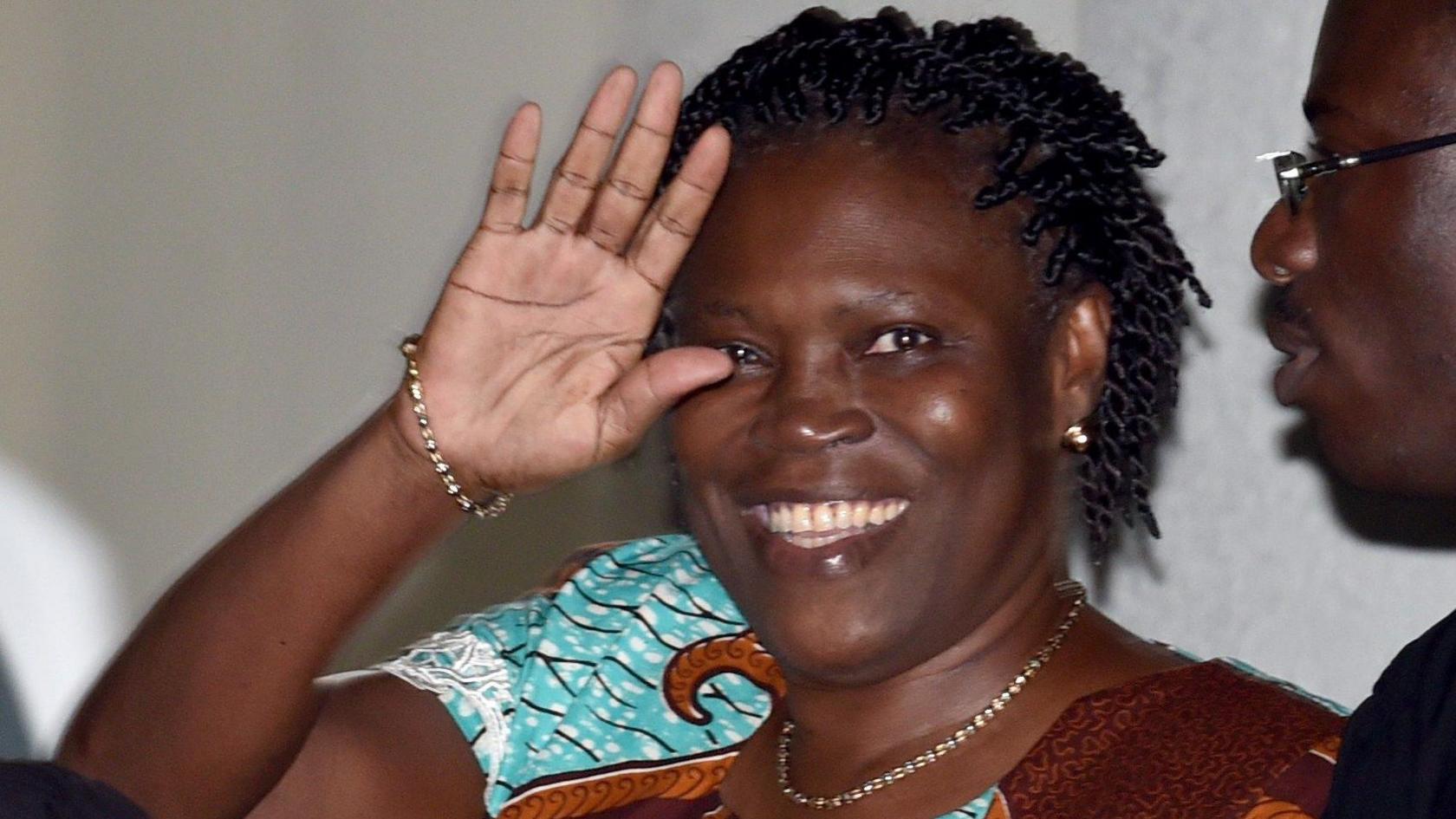
Simone Ehivet Gbagbo, candidate in Ivory Coast’s October 2025 presidential election, received the blessings and support of the traditional authorities of Bonoua on Saturday, October 5, during a ceremony at the royal court.
The King of Bonoua, Nanan Miessan Kacou Venance, accompanied by his court and current generation leaders, formally endorsed the former First Lady’s candidacy, providing both symbolic and spiritual backing ahead of the national vote.
“We believe in you, and the entire Abouré-Ehivet people will stand by your side to support you. You will not be alone in this political adventure,” declared Nanan Kadjo Aholié, the royal court’s cane-bearer, as he presented the traditional anointing to Gbagbo.
Koffi Koffi Lazare, vice-president of the Movement of Capable Generations (MGC) responsible for party values, highlighted the significance of the visit.
He noted that three years ago, the blessing of the Bonoua royalty had guided the creation of Gbagbo’s political party, and that her candidacy, now officially validated, was presented to the king for prayers and support before the campaign begins.
In her response, Simone Ehivet Gbagbo, who leads the MGC, expressed her gratitude to the king and the Abouré community.
She pledged to uphold the values of peace, justice, and development with dignity, vowing to remain faithful to the trust placed in her by both the traditional authorities and her supporters.
The upcoming election, scheduled for October 25, 2025, features five candidates, including incumbent President Alassane Ouattara.
Gbagbo’s engagement with traditional leaders reflects the continued influence of customary authorities in Ivorian politics, where securing both symbolic and grassroots support can be pivotal in shaping electoral outcomes.
The royal endorsement is expected to resonate among the Abouré-Ehivet population, potentially bolstering Gbagbo’s visibility and credibility as the campaign enters its final weeks.
Observers note that such alliances between political candidates and traditional authorities remain a defining feature of Ivory Coast’s electoral landscape, blending cultural heritage with modern political strategy.



